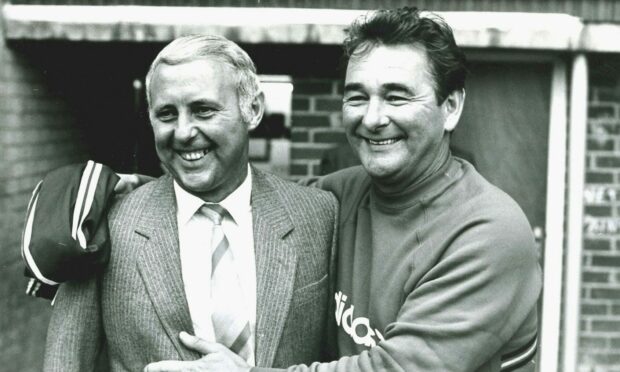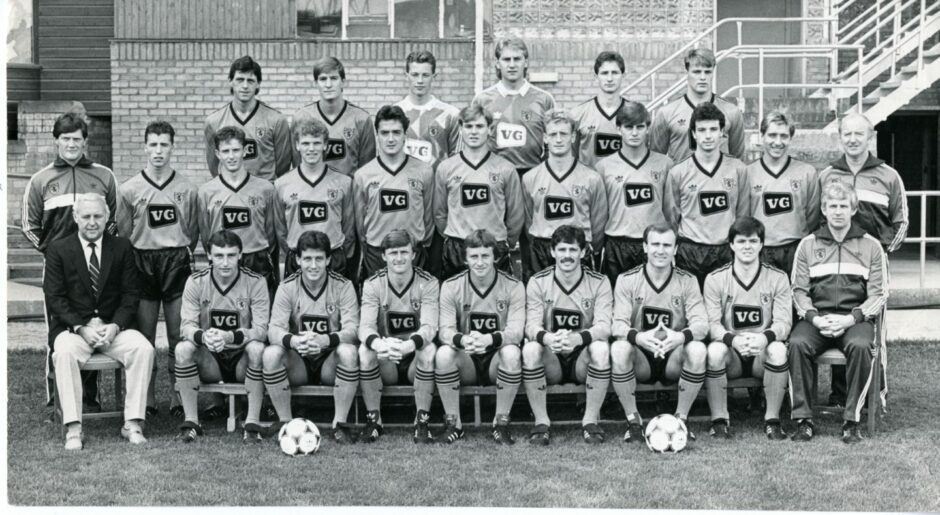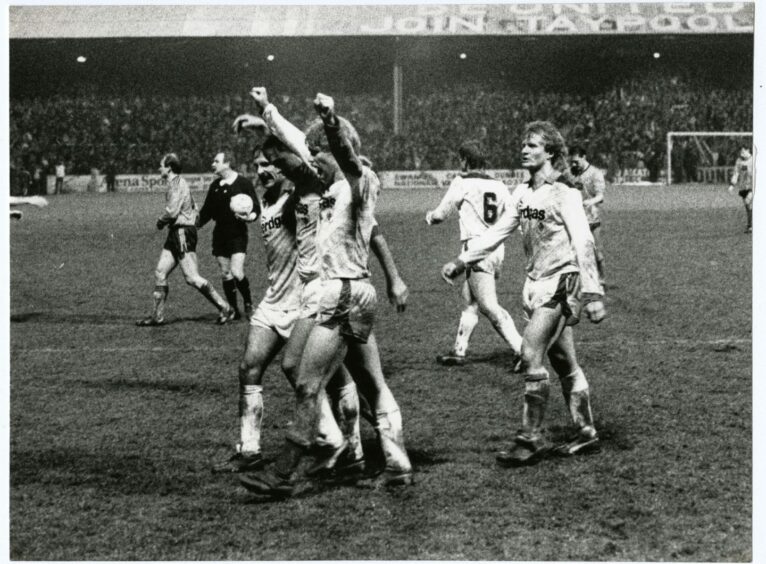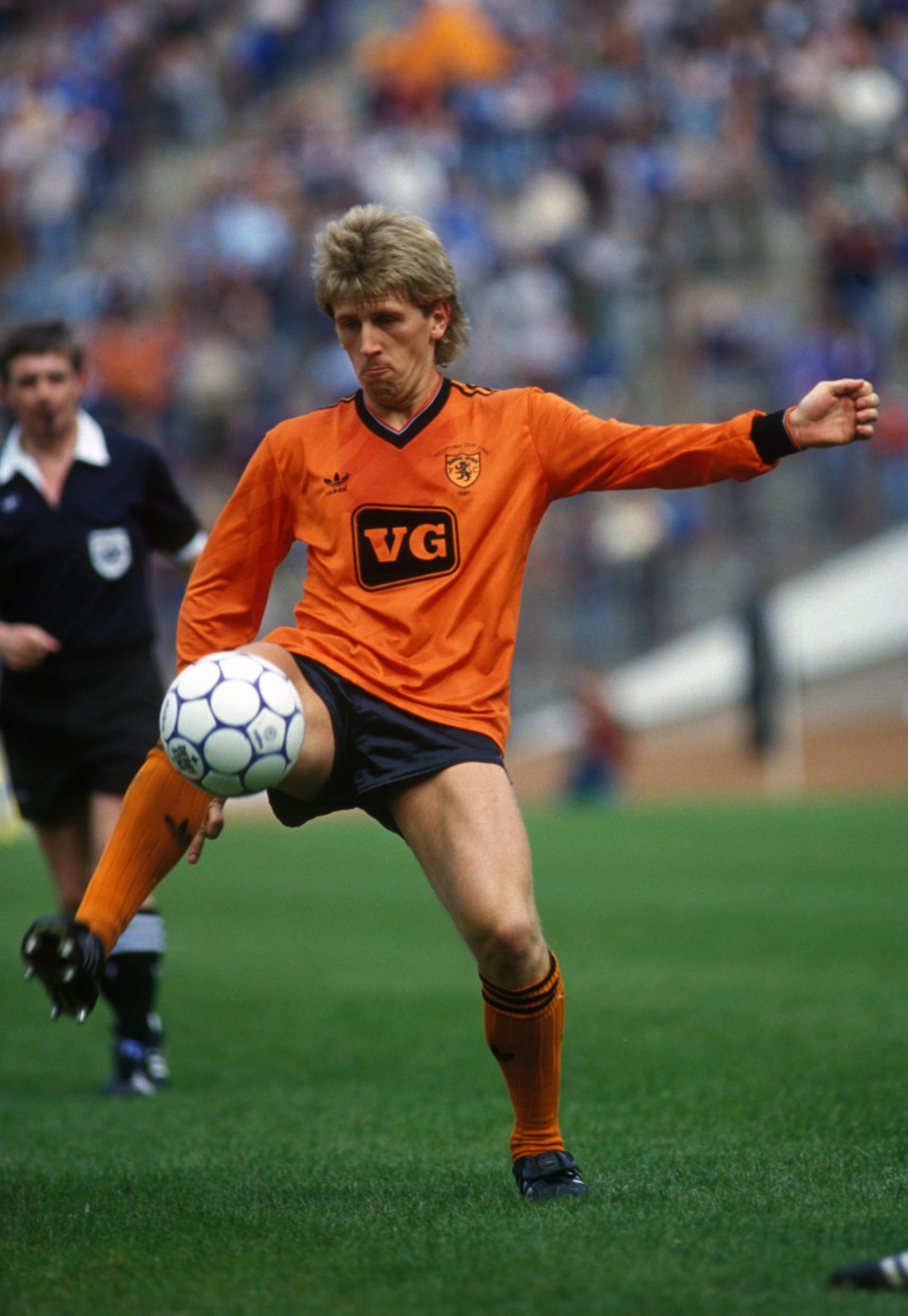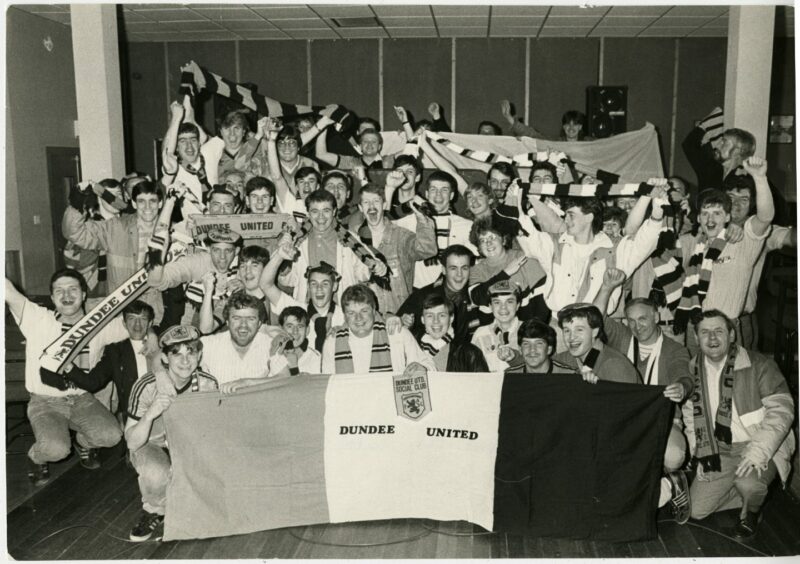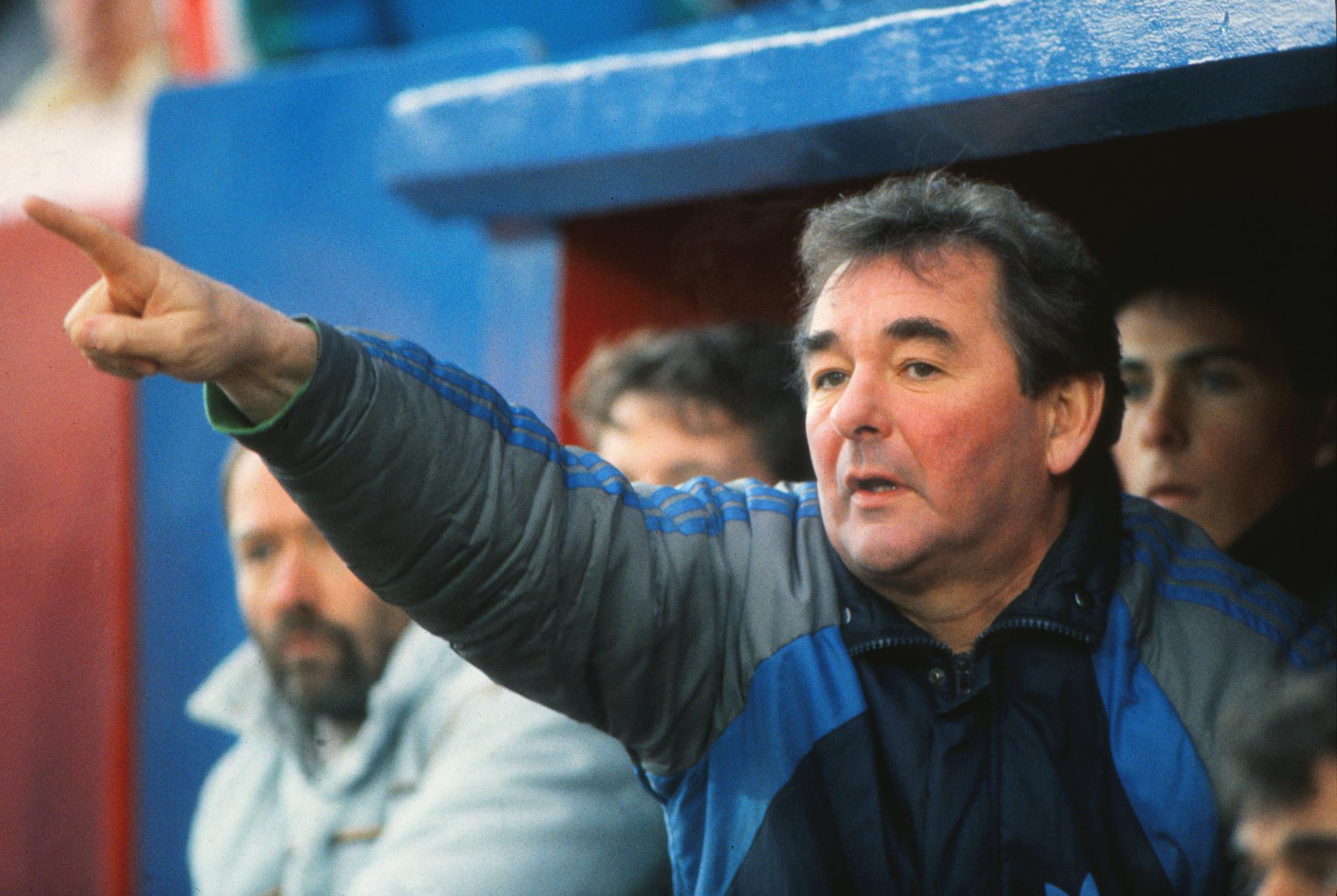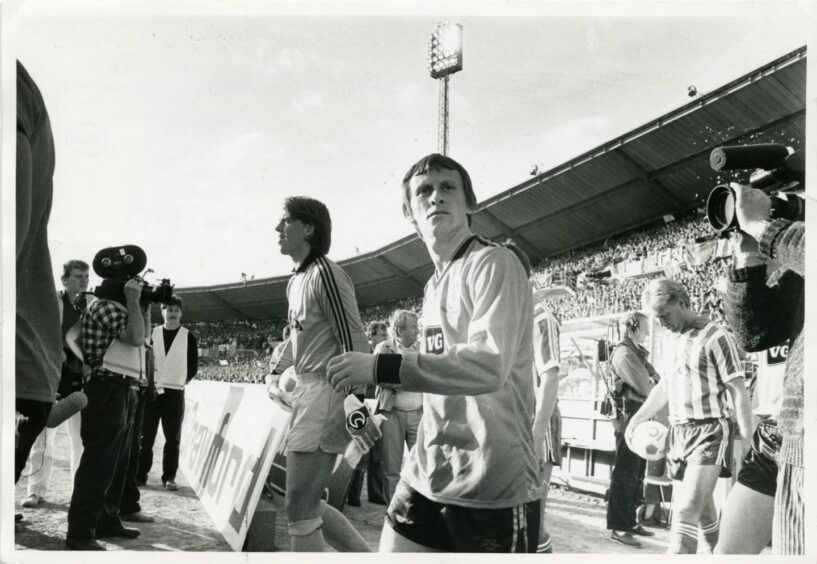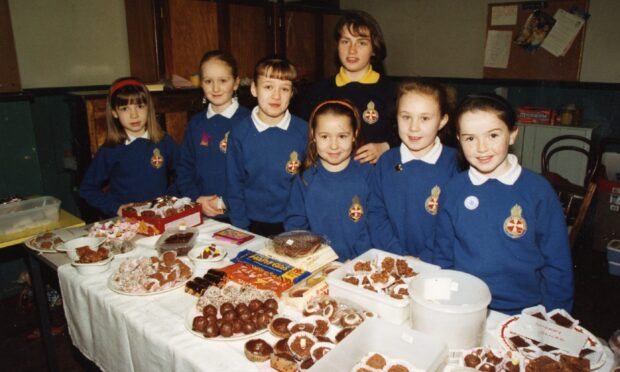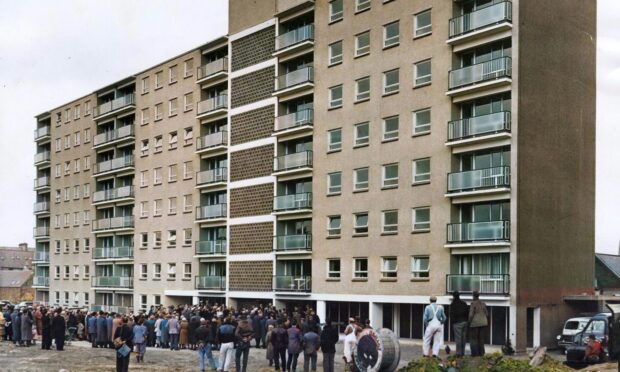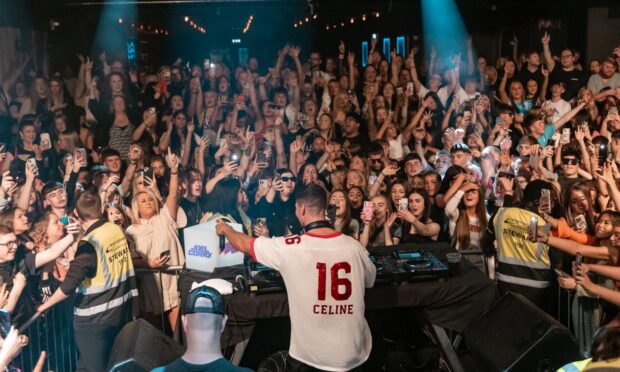Jim McLean was left purring with pride after Dundee United hit the heights in Germany and reached the 1987 Uefa Cup final.
Borussia Monchengladbach were 55 games unbeaten at home in Europe.
McLean rated the 2-0 semi-final win as the club’s best ever in European competition.
United had been written off as challengers for any honours at the start of the 1986/87 season following the loss of assistant manager Walter Smith to Rangers.
First-team regulars Richard Gough and Davie Dodds also left Tannadice but United’s form at the start of the domestic season was excellent despite the departures.
The Uefa Cup campaign started in September 1986 and this was the second season in which English clubs were banned from European competition.
United conquered Lens, Universitatea Craiova, Hajduk Split and the mighty Barcelona in previous rounds to reach the semi-final against the German cracks.
United and Borussia were old foes, having met previously in the second-round in 1981, when McLean’s men won 5-0 at Tannadice after losing 2-0 in Germany.
Jupp Heyneckes was still in charge of Borussia when they met in 1987 and he appeared to believe the tie was over after a goalless draw in the first leg at Tannadice.
United were riled up for the trip to Germany by some premature celebrations on the pitch at full-time from the German players following the stalemate in Dundee.
McLean enjoyed “jousting with giants” so much it was the name of his autobiography and the stage was therefore set for a memorable night.
Billy Kirkwood replaced the injured Maurice Malpas and United’s well-drilled defence, composed midfield and quick attack simply proved too much for the Germans.
Iain Ferguson opened the scoring
United’s 850 fans were boosted by the support of 1,750 off-duty servicemen and the match started very physically and rarely flowed in the early stages.
Iain Ferguson paved the way for the memorable victory when he bulleted home a header on 43 minutes following a cross from Eamonn Bannon.
Rarely, if ever, has a Scottish team played so well in a European tie and Borussia struggled to create chances and now knew they needed to score twice.
McLean got his counter-attacking tactics spot-on.
Paul Sturrock was playing up front in a 4-5-1 formation in the second-half and his main task was to run the channels and alleviate the pressure on the defence.
United’s number 10 virtually ran himself into the ground with his work rate and impressive hold up play until there was no gas left in the tank.
With two minutes to go Kevin Gallacher replaced Sturrock and his fresh pace paid off when he sprinted clear on the right to set up a chance for Ian Redford.
Redford went round the goalkeeper to seal an unforgettable 2-0 victory.
McLean went round and individually congratulated his players after the final whistle.
He said: “I really doubted if the players could reach the heights they achieved in Barcelona in the last round.
“But they did and I rate this performance as the best of them all.
“Borussia were a better side, technically and physically, than Barcelona, but everyone responded to the challenge.
“It was like a game of chess where every move worked out perfectly.
“I would like to think that we have struck a blow for Scottish football. I always thought that we could do it and it was even better to achieve it away from home.”
Taking the lift at full-time
The players celebrated on the pitch before being faced with a dilemma!
Borussia’s Bokelberg Stadium’s dressing-rooms were three storeys above pitch level so there was the option of taking the lift or stairs to go back up at full-time.
Paul Sturrock broke it down further in his 1990 memoir.
He said: “It was only as I left the field that I became aware of the unbelievable support which had followed us to Germany that night.
“The many critics of the United support were, I felt, quashed in one fell swoop!
“My initial reaction to the final whistle was not to think about what we had achieved by reaching the final of the Uefa Cup, but to contrast the different reactions between the crestfallen Germans and my cock-a-hoop Tannadice colleagues.
“It was those quite opposite emotions which really brought home to me what we had just accomplished. The celebration between players and fans in the ensuing 10 minutes was one of the most heart-rending moments of my entire career.
“Having taken the accolades, we trooped off happy but weary to face the choice of the lift or the stairs to the dressing-rooms. Needless to say the lift got everyone’s vote!”
Brian Clough was impressed
The magnitude of the achievement was highlighted by Nottingham Forest manager Brian Clough, who was covering the game as a studio analyst for the BBC.
Clough – who guided Forest to the European Cup in 1979 and 1980 – was delighted to see United shock some of the biggest sides on the continent.
He said: “They’ve been incredible. The two results they’ve had in Europe against the Spaniards and the Germans are possibly the best results we’ve seen in Europe in the past 10 years.”
That was some statement given what Forest, Liverpool and the like had achieved.
Clough added: “It’s a good stimulant for the game. It’s good for everybody.
“It puts everyone in with a shout when you see little clubs like Dundee United and Nottingham Forest win big trophies. I expect them to win the Gothenburg clash.
“We hope they win, we’ll keep our fingers crossed.”
United went on to lose the final 2-1 over two legs against Gothenburg, with a 1-0 Scottish Cup final defeat to St Mirren sandwiched in between.
United had plenty to be proud of, though, and perhaps now – 35 years on – it’s clearer than ever what a watershed that season was for the club and its fans.
The 1987 heroes will return to share a stage at the Whitehall Theatre on May 13 to look back at the campaign to mark the 35th anniversary.
It promises to be quite the evening.
More like this:
Never-before-seen photos of Dundee United fans in Gothenburg in 1987
